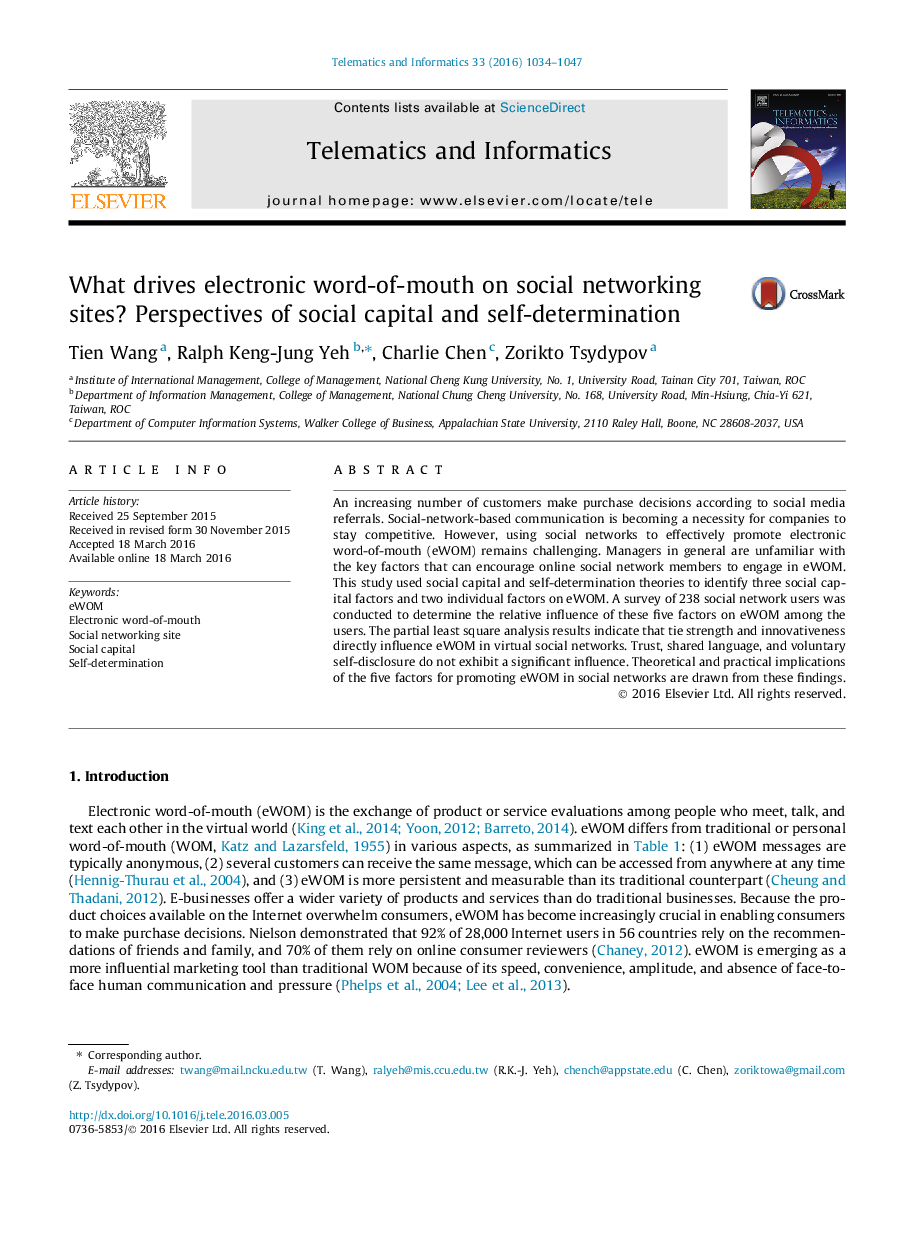| Article ID | Journal | Published Year | Pages | File Type |
|---|---|---|---|---|
| 10343975 | Telematics and Informatics | 2016 | 14 Pages |
Abstract
An increasing number of customers make purchase decisions according to social media referrals. Social-network-based communication is becoming a necessity for companies to stay competitive. However, using social networks to effectively promote electronic word-of-mouth (eWOM) remains challenging. Managers in general are unfamiliar with the key factors that can encourage online social network members to engage in eWOM. This study used social capital and self-determination theories to identify three social capital factors and two individual factors on eWOM. A survey of 238 social network users was conducted to determine the relative influence of these five factors on eWOM among the users. The partial least square analysis results indicate that tie strength and innovativeness directly influence eWOM in virtual social networks. Trust, shared language, and voluntary self-disclosure do not exhibit a significant influence. Theoretical and practical implications of the five factors for promoting eWOM in social networks are drawn from these findings.
Related Topics
Physical Sciences and Engineering
Computer Science
Computer Networks and Communications
Authors
Tien Wang, Ralph Keng-Jung Yeh, Charlie Chen, Zorikto Tsydypov,
